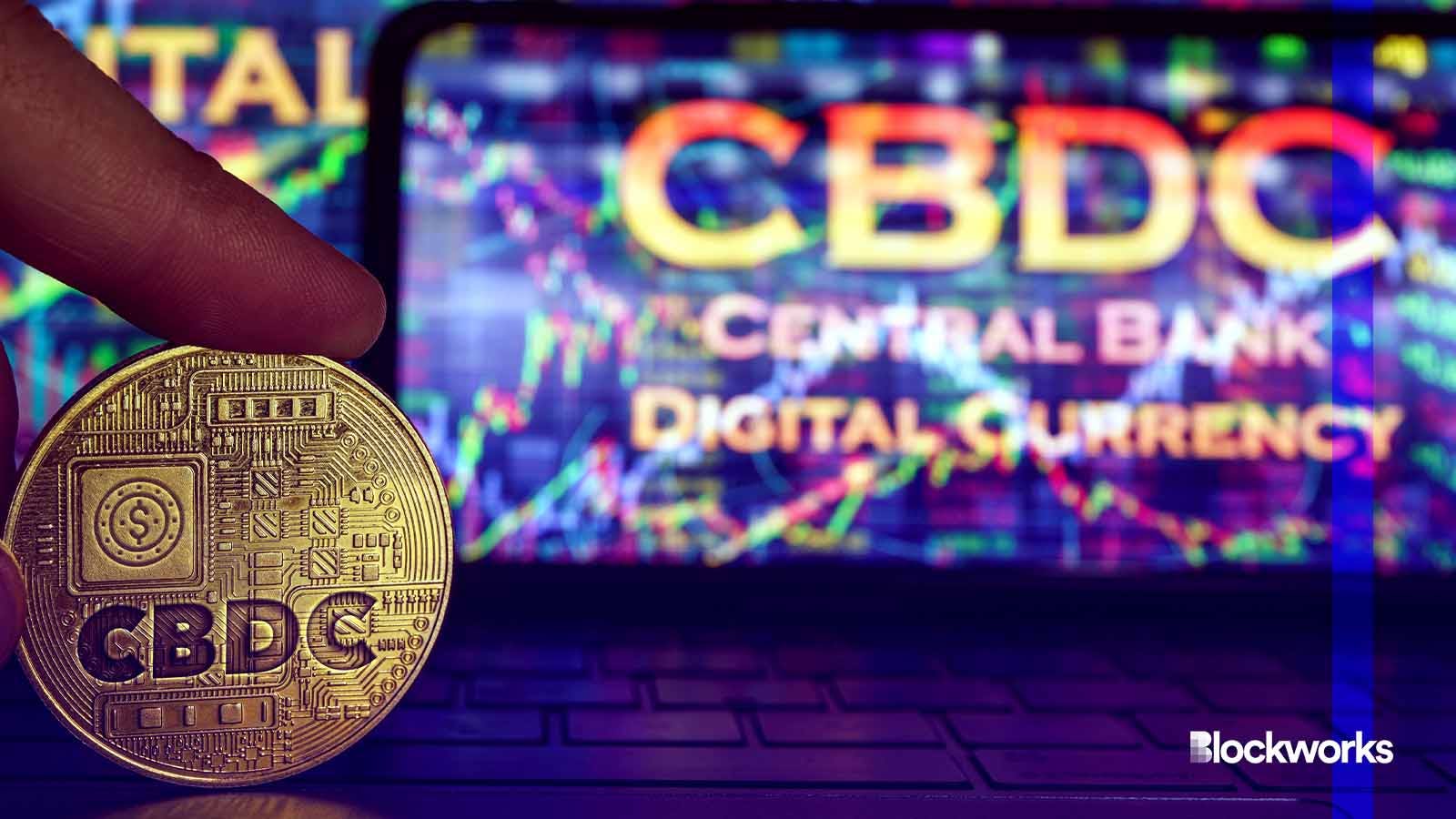Fed continues to explore ‘CBDC payments backbone:’ Barr
The Fed’s CBDC research is focused on how ledgers record transactions and “end-to-end system architecture”

Rokas Tenys/Shutterstock modified by Blockworks
The Federal Reserve is not any closer to making a decision on a central bank digital currency (CBDC), the Fed’s Michael Barr said in a speech on Friday.
The Vice Chair for Supervision added that — as companies and central banks continue to mull stablecoins and CBDCs — “we must carefully weigh the benefits and risks of different uses of these new technologies.”
Barr reiterated that the Fed continues to explore and research “emerging technologies that might support a CBDC payments backbone, or for other purposes in the existing payments system.”
“The research is currently focused on end-to-end system architecture, such as how ledgers that record ownership of and transactions in digital assets are maintained, secured and verified, as well as tokenization and custody models,” he continued.
While a US CBDC is just a figment of the imagination right now, some in Congress are seeking to ensure that privacy is protected by any form of a digital dollar that comes to fruition — and others are focused on making sure a CBDC never leaves the research stage.
“As policymakers, we should be asking questions about how a digital dollar could be designed to maximize privacy and prevent exploitation of personal data,” Rep. Stephen Lynch D-Mass., said back in September.
Some democrats — including Maxine Waters (D-CA) — have called Republicans out for their anti-CBDC stances and legislation.
Waters said in September that the Central Bank Digital Currency Anti-Surveillance State Act would prevent the Fed from researching a potential CBDC.
Rep. Tom Emmer (R-Minn.), argued that the bill was just aiming to prevent President Biden from issuing a “financial surveillance tool” with the ability to “undermine the American way of life.”
Politicians in DC aren’t the only ones voicing concerns, either. RBC Wealth Management published a report at the end of August focused on privacy and security issues.
“Combining all financial information in one spot is a step-change higher in potential informational abuses,” RBC wrote.
Despite concerns about privacy, the Bank of International Settlements said roughly 93% of central banks surveyed are looking into “some form” of a CBDC.
Barr, in his speech Friday, also emphasized the need for “international collaboration and coordination in payments systems.”
A point echoed in a speech from the Bank of International Settlements general manager Agustin Carstens in late September.
Carstens said that countries considering CBDC implementation have to “decide whether to issue CBDC and how to balance the rights and obligations of its users at a national level.”
“International coordination and cooperation is critical,” he added. Central banks, such as the Monetary Authority of Singapore, are also focusing on interoperability as they continue their research.
Get the news in your inbox. Explore Blockworks newsletters:
- The Breakdown: Decoding crypto and the markets. Daily.
- 0xResearch: Alpha in your inbox. Think like an analyst.






